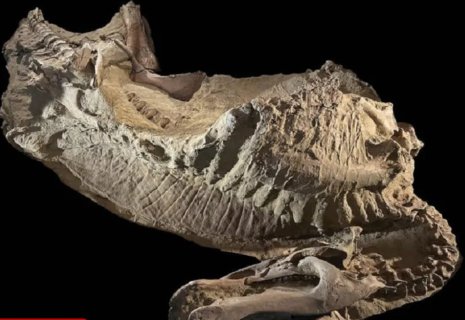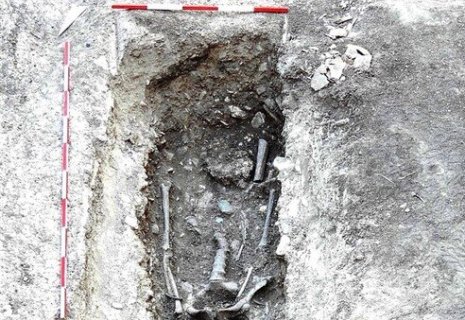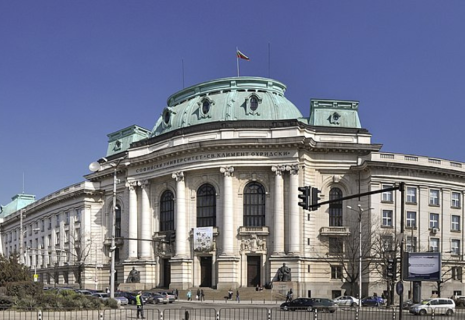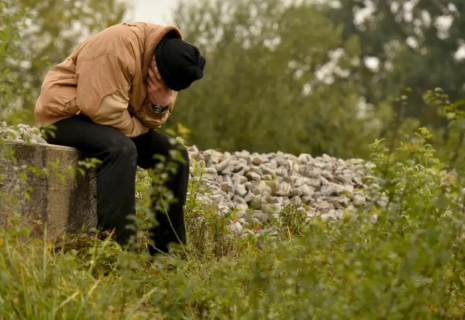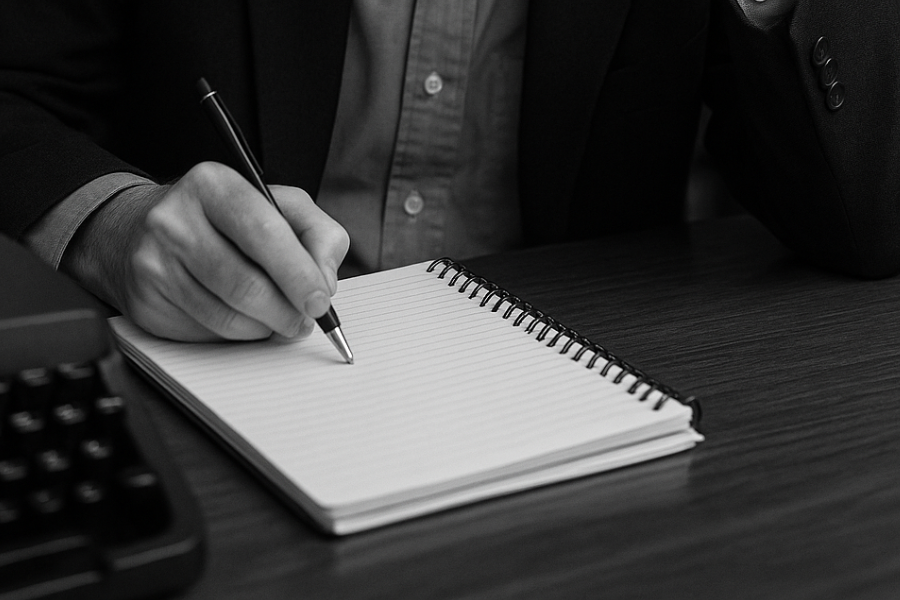
On Memory, Journalism & Principles
By Alexandru Giboi
You can use AI to generate images, but you can’t use it to regenerate memories.
Main Insights
More discussions about the core values of journalism are needed, not less. More about ethics, morality and the positive impact it has on societies. Especially now that AI is dominating our conversations…
This is one of my conclusions after a very interesting Digital Media Licensing Association (DMLA) Conference in Atlanta (Georgia, USA) during which I represented EANA - The European Alliance of News Agencies and was happy to take part in a very important and interesting panel discussion, which actually prompted me to write about the event in this edition of the Integrator.
Many thanks to Thomas Smith & Leslie Hughes for organising a panel discussion on archive photography! It’s a rarely discussed but very impactful topic.
Having led Romania’s national news agency for more than five years, I was lucky enough to be able to learn a lot about what photography archives mean.
And the case of the Romanian news agency is special (but not solitary), because, for a very long time (around 40 years) was the main (and sometimes only) media outlet that was allowed to take photos from events in the country.
Why was that so? Because of the communist dictatorship.
Pause for a disappointed nod towards today’s hard / far left & right - many people supporting these extremes did not actually live through that type of regime so they don’t know better, but they should. And as someone who lived through the ending of that era, and whose family had a lot to suffer from communists, I can tell you: neither extreme is ever good. Those who glorify extremes today often never experienced them. You can read more about it in a previous edition of the INTEGRATOR:
On Authoritarianism
But let’s go back to today’s topic.
When you have only one or very few sources of information from your country’s history, those sources, and what they produce and hold, become invaluable.
Photo archives are more than collections of images. They grow with each passing day, expanding a nation’s visual memory: a silent record of who its people were and a documentary of how they became who they are now.
Photo archives fortunately don’t just hold headlines. The aftermath of protests, the rebuilding after loss, the ordinary faces that lived through extraordinary times - they are all there.
Together, these images form a narrative that no government report or data set can replicate: the story of a country told through the eyes of those who witnessed it.
When photo archives are neglected, disregarded or lost, a country doesn’t generally lose access to its past - it loses evidence about how its people lived, struggled, loved, and evolved.
Real Life
I was really excited to be in Atlanta and to be able to present the work that I did long time ago with AGERPRES - the Romanian national news agency - on the topic of photography archives. And I was lucky to have a very passionate team back then that supported and carried this work forward.
Very emotional moment to see those images again and I’m happy to share the below video with you. It’s from 9 years ago, but that’s part of what makes archive photography so rich and important: it actually ages like wine - the older photos are, the more valuable and meaningful they become. .
I can’t help but wonder, while looking at these images, who those people were. Did those kids survive the famine in 1946? Was the man eventually brought to safety from the flood in 1970?
Every frame is a fragment of someone’s past - something no algorithm can recreate - so every archive photo is important to someone.
And this became especially clear to me when Getty Images’ Cassandra Illidge presented the company’s work on preserving photo archives and her work with HBCUs - Historically Black Colleges and Universities. You can see some of their work here:
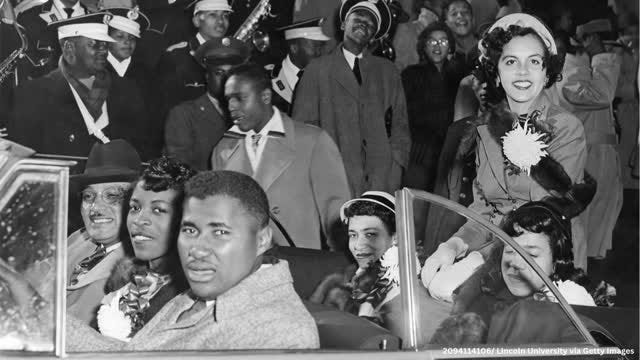
One story Cassandra told was about a person who recognised her own grandmother while looking at archive pictures from the high school which both her and her grandmother had attended. She had never seen her grandmother as a young woman before.
Clarity Point 1: On Journalism Values
As it was mentioned during the DMLA AI Summit last Monday, we (the people, politicians, the news media, tech companies, etc.) need a “north star” to guide us to the future during these times and, in my opinion, that north star should be a sum of ethics and principles.
Real journalism, the one that is based on ethics and principles, showcases the truth and helps people gain perspective. It’s what separates professional media from fakes and AI slop.
Of course artificial intelligence is changing how we search, see, and create content. It can simulate - not produce - knowledge, it can reproduce language, but it cannot witness.
Only a journalist can take part in an event, feel its pulse, and transmit ahead for others to also know about it.
Only a photographer can look through a lens and capture not just what happened, but how it felt.
Do you know what sets real media apart from the rest? It’s applied principles.
I have one example from Europe - you can read the AFP (Agence France Presse) editorial standards and best practices here - and one from the US - my go-to US source is the Associated Press (AP), and you can read their news values and principles here.
Let’s face it, traditional news media makes mistakes. A lot of them, sometimes. But quality media owns up to their mistakes, admits and corrects them.
Clarity Point 2: On Preserving Memories
Professional reporting - and especially through photography - also preserves history, via archives that are built up in time.
Do you know what archive photography is about? You can start by taking a look at your old photos.
How many do you still have?
Do you still have photos of your grandparents? What about photos of your old house or your elementary school?
If you have some, scan every one and make it digital. Store it in a safe cloud. Definitely keep the old originals safe too.
You can find advice on how do preserve original photos on the website of the US National Archives. The New York Times also has a useful piece about How to Store Print Photographs So They Last for Generations.
One Beautiful Image from the US, this time
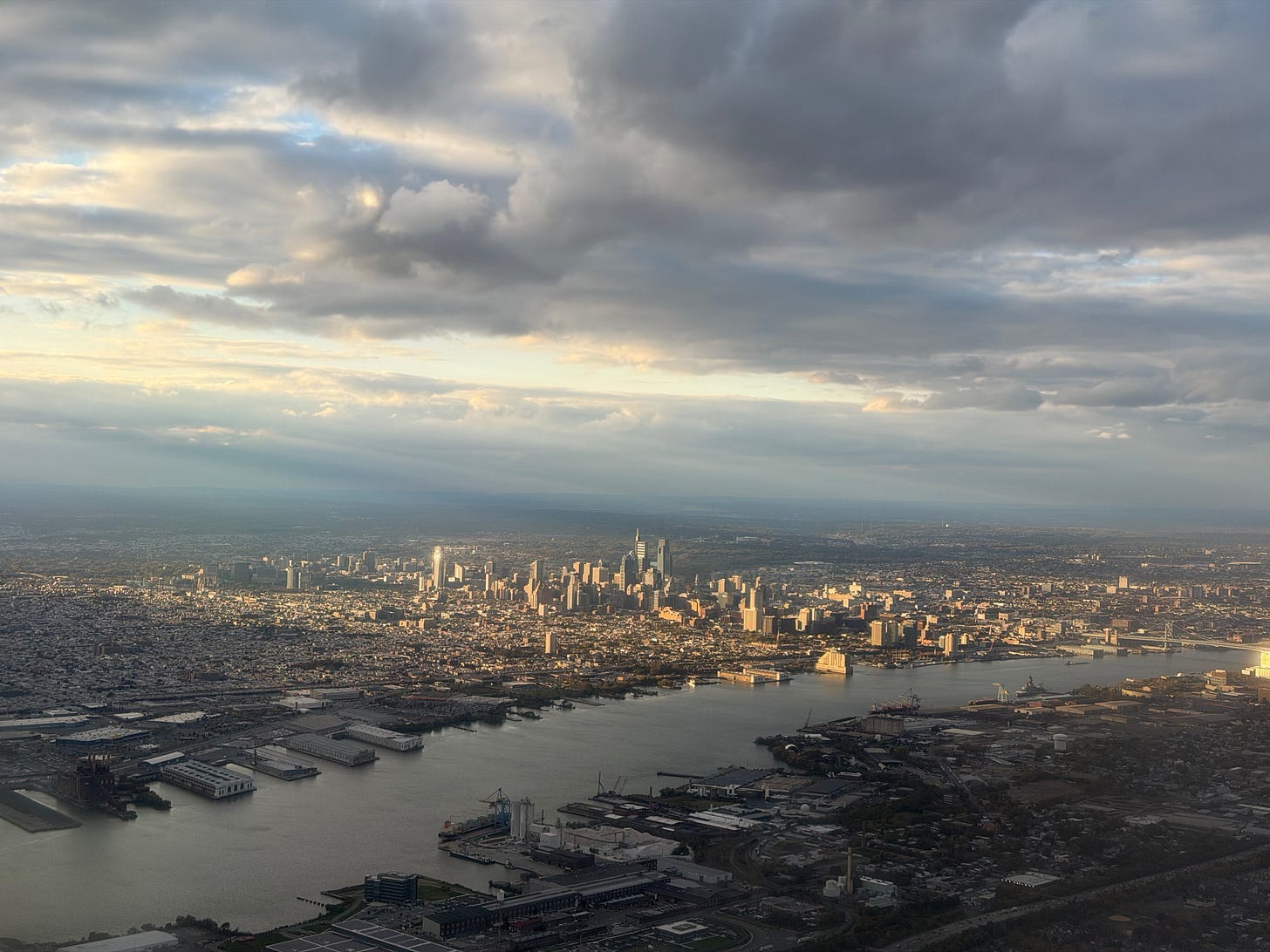
That’s not Atlanta, it’s Philadelphia. I had learned that it’s a very troubled but deeply resilient city, with many social issues (please let me know if I’m wrong), which makes professional journalists there even more important.
All things considered, I love this image, which I took while landing there for my connecting flight, on a blessed clearly-not-my-regular Thursday afternoon. It speaks (to me, at least) about positivity, optimism and, why not, about keeping focus on the good. Like the sun shines directly on the city, breaking through thick clouds, engulfing it in light and, maybe, bringing a bit of joy to the people living there. As it brought for me, on that Thursday afternoon.
Dispatch
Journalists need a lot of things in order to report (it’s not an easy job - some of them carry ladders for more easily crossing fences when the situation calls for it - I saw the pictures, I heard the story in Atlanta!), but mainly they need to be allowed to do their jobs independently. Without them, entire events, communities, and even countries’ histories risk being forgotten.
A big round of applause to all of the journalists who are doing their jobs with the awareness of the impact they have on societies! I’m listing a few of them here, in a LinkedIn post.
How can you help? You can start by supporting real journalism. Pay for your news. Talk to your representatives in Parliament & Government. Let them know you care about journalists and their work. The right amount of pressure goes a long way.
If you want some specific advice, I’m happy to answer any questions you might have.
The future might not seem so bright right now, but we can work together to make it brighter. If you want to stay with me on the journey of the INTEGRATOR newsletter, you’re always welcome here.
If this reflection resonated, forward it to one person who thinks the same as you do, and to one decision-maker. It will surely spark a conversation.
Thank you for paying attention to this matter :wink: Until next Sunday, I wish you a great week ahead.


